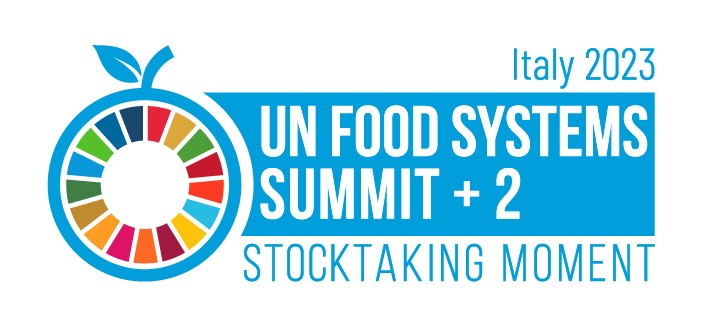Following its launch at the United Nations Food Systems Summit (UNFSS) in 2021, the Zero Hunger Private Sector Pledge (“Pledge”) has mobilized an additional USD 215 million in commitments from the private sector. In total, the Pledge has mobilised nearly USD 560 million from 46 companies towards the zero-hunger goal. To ensure the integrity of the Pledge, it is also announcing the launch of its new reporting framework and first reporting process.
According to Carin Smaller, Executive Director of the Shamba Centre who is leading the Pledge coordination: “The Zero Hunger Private Sector Pledge provides an opportunity to help the private sector identify and fund the most effective interventions to achieve zero hunger and the participation from companies. The new reporting framework holds companies to account and, by protecting the integrity of the Pledge, encourages more companies to join.”
Launched at the UNFSS in 2021, the Pledge recognises the important role of the private sector in helping ensure food security and nutrition for all, calling on companies to align their business investments with an evidence base of high-impact solutions for the sustainable eradication of hunger. Concretely, the initiative requires companies to pledge investments targeting 90 priority countries and 10 intervention areas along the following categories:
- Empowering the excluded: giving marginalized populations and small producers the resources to learn and benefit from successful agricultural interventions.
- On the farm: encouraging agricultural interventions to support sustainable practices that are economically viable for farmers.
- Food on the move: reducing post-harvest losses by assisting small-scale producers and SMEs across the value chain to increase their productivity and income.
At the time of its launch, the Pledge mobilized $345 million in private sector commitments from small and medium-sized enterprises as well as large multinational companies from all around the world. Today, at the UNFSS +2 Stocktaking Moment, the Pledge welcomes new commitments from two companies that collectively contribute more than $50 million, thus bringing the total tally to nearly $560 million committed by 46 companies in 47 priority countries across Africa, Asia, and Latin America.
The reporting framework is the first step towards accountability and long-term impact for all participants in the Pledge. It provides a guideline and methodology on how to verify if companies are honouring their pledges and serves as a high-level instrument which can be used to hold companies to account. It also establishes a proof of concept, to encourage more companies join the initiative in the future.
The reporting framework defines the guidelines for the reporting process, which will culminate in the preparation and publication of a first accountability report by the end of 2023. This report will contain aggregated data on all pledges of over $1 million. The 2023 reporting report will verify that commitments have been converted to real investments, confirming the amounts spent to date and countries of implementation.
The Zero Hunger Private Sector Pledge is co-organising a side-event at the UNFSS +2 Stocktaking Moment to assess private sector ambition, action and accountability towards food systems transformation since the 2021 Food Systems Summit. Company representatives, including Gabriela Wurcel, Multilateral Affairs Director at FMC Corporation, will discuss how they are contributing to SDG 2 and what more can be done to catalyse food systems transformation.
The side-event will take place on Wednesday, 26 July from 13:30-14:30 CEST in the Philippines room at the FAO headquarters in Rome. It will also be livestreamed.












